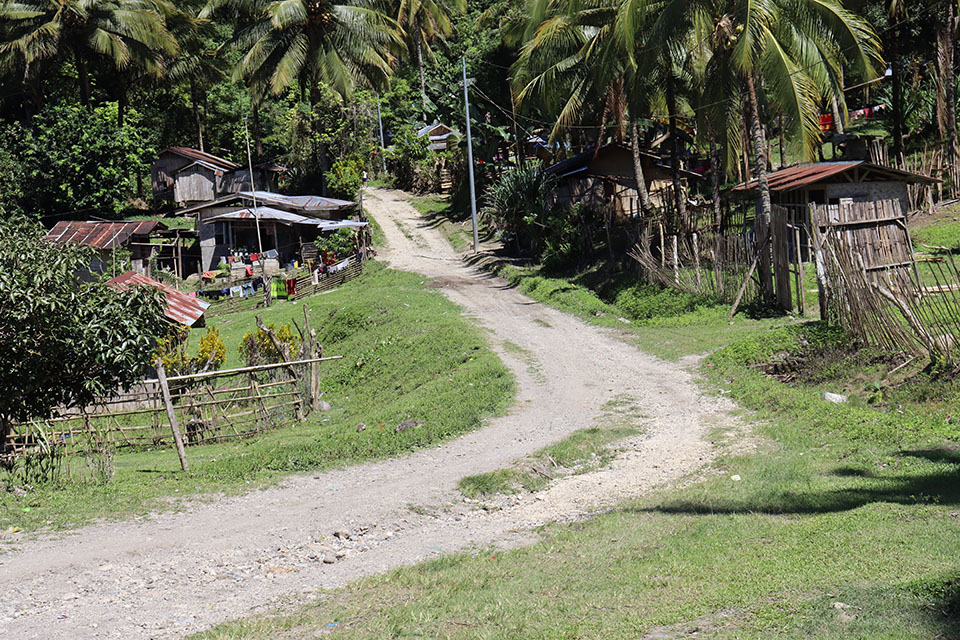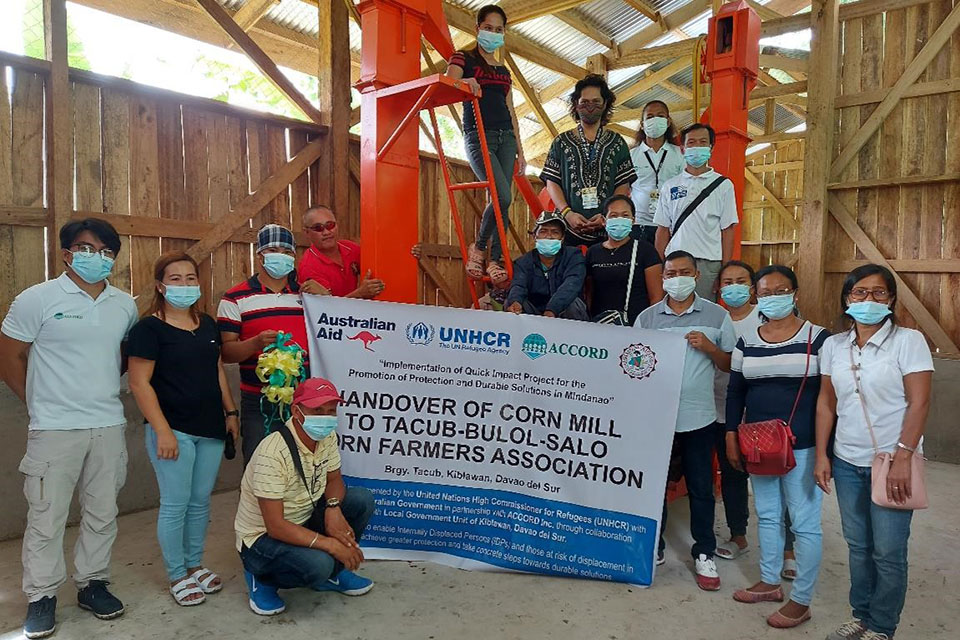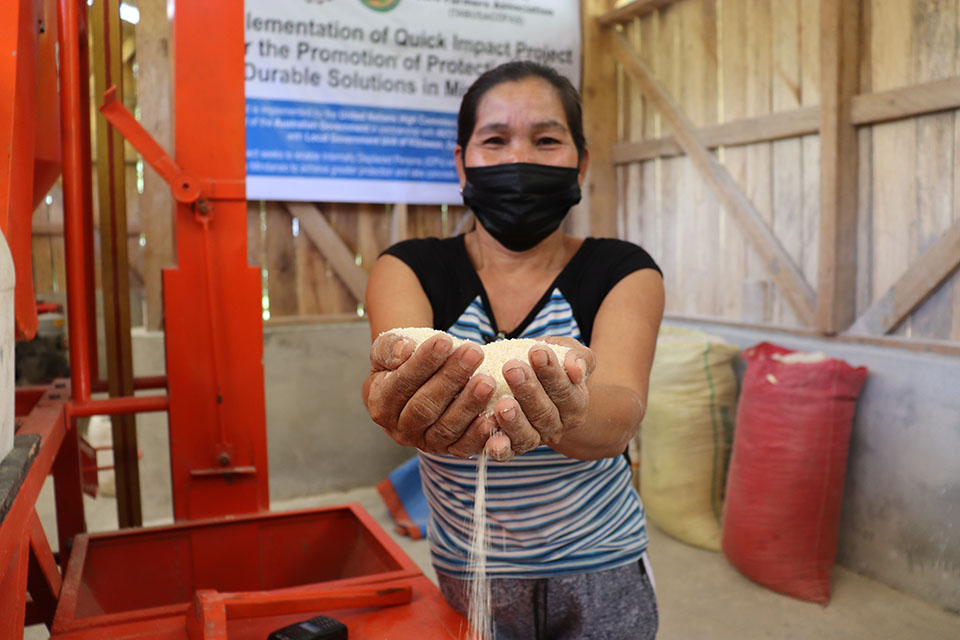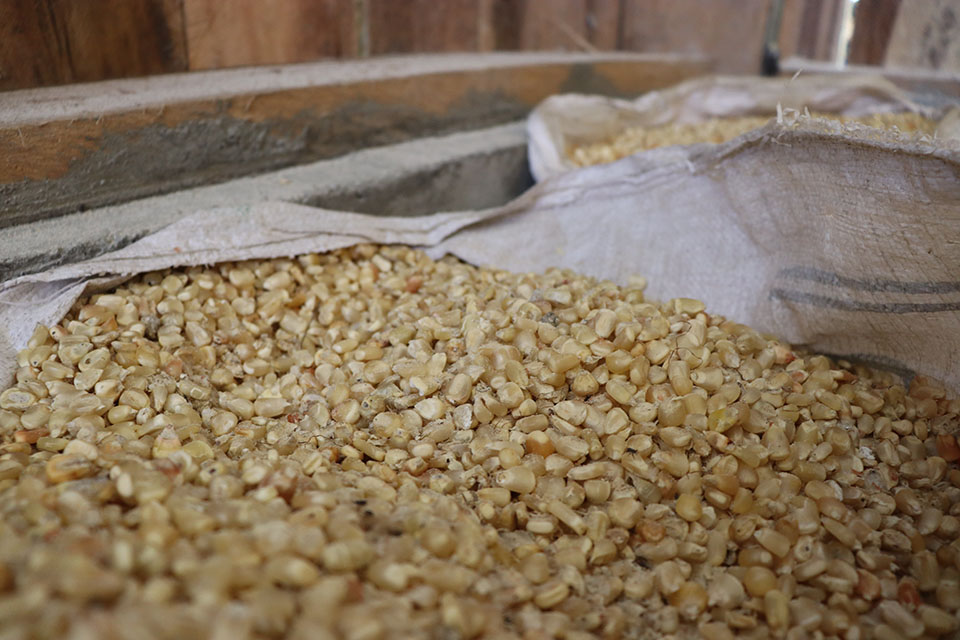Corn mill project eases corn processing for farmers in earthquake-prone Davao del Sur villages
Every day, the corn farmers of Bulul-Salo and Tacub traverse long, steep stretches of unpaved roads to tend to their fields. Farming is the main source of sustenance and livelihood for the residents of the two villages, located in the mountains of Kiblawan, Davao del Sur province in the southern Philippines. Years ago, clan feud and land dispute were often the root causes of internal conflict between indigenous peoples in the area. At present, the communities face natural hazards such as flooding and landslides.
Corn, as the primary crop grown in the area, serves as a staple food, and the residents also produce corn products to sell in the market. To process the crop, the farmers make another long and risky trip to the nearest milling station almost 23 kilometers away. They ride horses and hire motorbikes to carry the produce load from their villages.
“We have to work hard so we can eat three meals a day,” says Myrna Binuhay, a Bulul-Salo village leader. She shares that farmers such as herself often have to hurry when they visit their fields as the area is hazardous and prone to earthquakes. In 2019, a 6.9-magnitude quake displaced several families in the area. There are also many stories of farmers who get into accidents while transporting their goods due to poor road conditions. With the onset of the COVID-19 pandemic, the difficulties faced by the community’s farmers, isolated from the municipal center, have been further compounded by the lack of affordable transportation options and the disruption of economic activities.
When the village was identified to be the site of a low-cost, quick impact project, the board members of the Tacub-Bulul-Salo Corn Farmers Association (TABUSACOFAS) identified the need for a corn mill to be installed in the area for the benefit of the two adjoining barangays. The quick impact project is implemented by UNHCR, the UN Refugee Agency, and its partner, Assistance and Cooperation for Community Resilience and Development (ACCORD) with the support of the Australian Government. With the support of ACCORD, the community was also able to tap the resources of the local government unit and other donor agencies to support the project.
The TABUSACOFAS then decided to pool the resources of its 183 members to provide their own counterpart to the project. Members also contributed labor to the actual construction of the small building housing the mill, which was ensured to be earthquake and typhoon-resilient. UNHCR and ACCORD collaborated with the municipal government of Kiblawan to support this initiative as a means of empowering communities and promoting protection and peaceful co-existence.
Jessie Parasan, Chairman of the TABUSACOFAS says, “This corn mill will help ease the burden that people in our villages have to endure just to have their corn milled.” With the corn mill brought closer to the community, the risk of meeting transportation accidents and vulnerability of the people to hazards traveling back and forth to the next town have been reduced.
The corn mill has been fully functional since 21 January this year and operates at least three days a week. The local village council monitors the corn mill and reports to the board of the TABUSACOFAS . The project is also fully supported by the Kiblawan Municipal Agriculture Office which committed to provide material support, supervise, and monitor the project to ensure its sustainability.
The board members of the TABUSACOFAS have also participated in several trainings including on leadership and preparation of financial statements to ensure their capacity development in managing the project. Three members were also trained on operating the mill.
“[The mill] is important to us because we live so far away from the town proper, and now we don’t have to pay for transportation. It’s a big help to our families that we have a mill in our village… We get our daily food needs from here now,” says Jessie.
With the corn mill, the two villages are now able to produce a total of four products and byproducts, including corn rice, sungo (corn fiber), tahop (corn bran), and tiktik (cornstarch). While the project is still new, the products mainly support the subsistence of the corn farmers and their families, but in the future, it is the hope of the TABUSACOFAS that the project will bring them sustainable income.
Share on Facebook Share on Twitter




